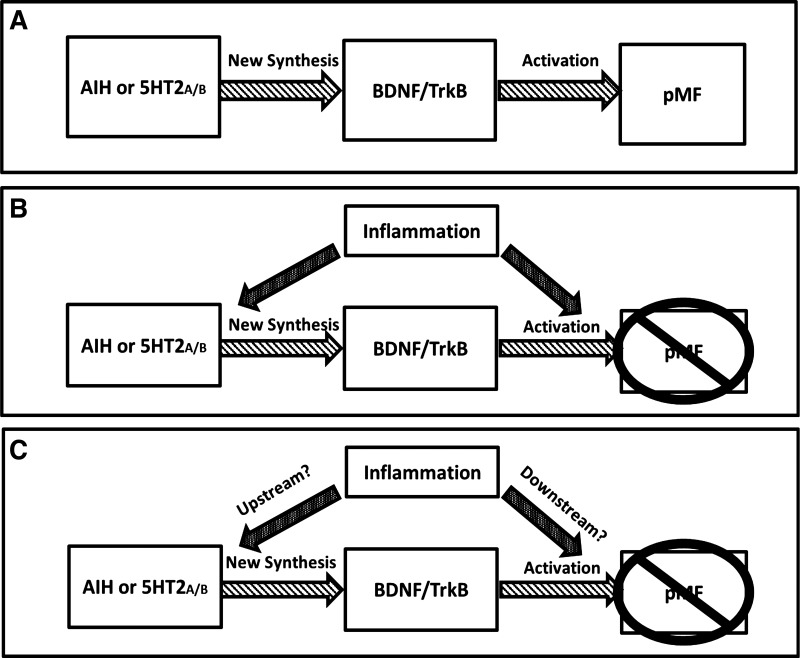Fig. 1.
Possible mechanisms whereby inflammation abolishes the Q pathway to phrenic motor facilitation (pMF). A: simple depiction of the serotonin-dependent Q pathway to pMF. Serotonin2A/B receptors activated by acute intermittent hypoxia (AIH) or intrathecal agonist injections cause new brain-derived neurotrophic factor (BDNF) synthesis and BDNF/TrkB signaling leading to pMF. B: pMF elicited by serotonin-dependent receptor activation is abolished or attenuated by systemic inflammation through unknown mechanisms; the goal of this study is to reveal steps in this cellular cascade that are undermined by mild systemic inflammation. C: possible mechanisms whereby inflammation impairs the Q pathway to pMF. Inflammation may affect pMF by inhibiting mechanisms upstream and/or downstream: either 1) 5HT2A/B receptor activation or function (upstream mechanisms); and/or 2) BDNF/TrkB signaling (downstream mechanisms).

